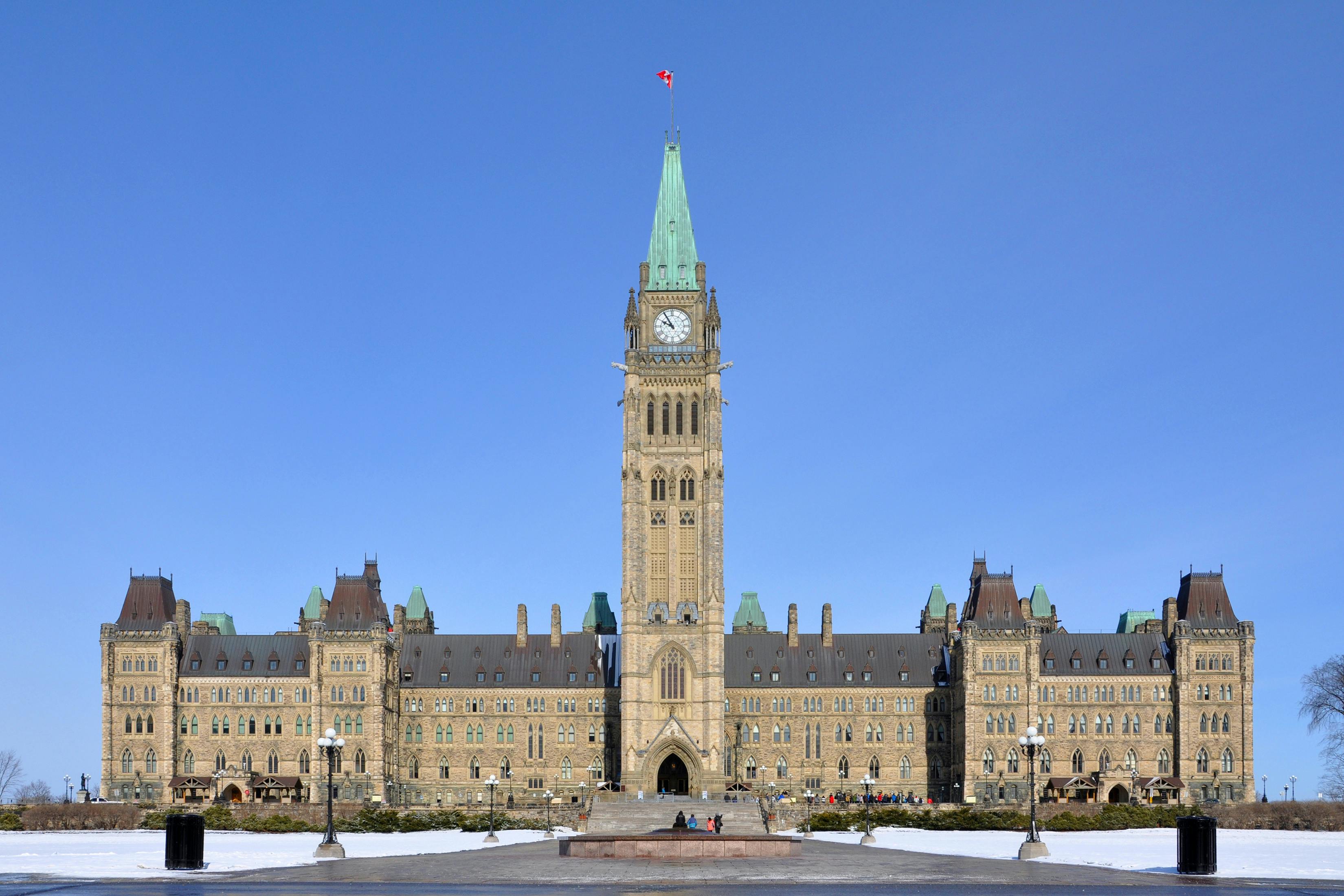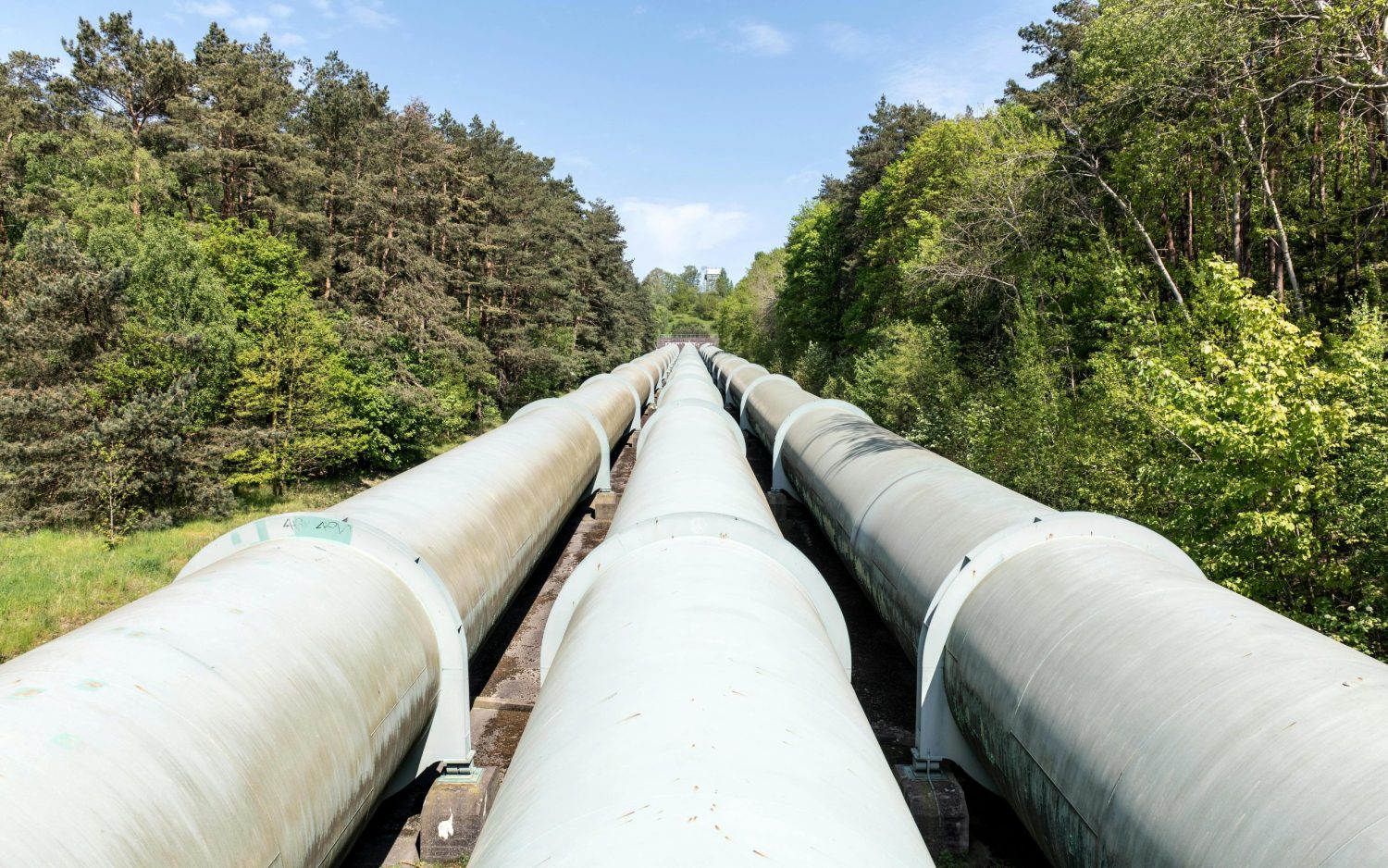The Honourable Chrystia Freeland
Deputy Prime Minister and Minister of Finance
Delivered via Department of Finance Canada submission portal
Re: Submission to the Minister of Finance regarding Budget 2021
Dear Minister Freeland:
Thank you for the opportunity to provide a written submission to the Ministry of Finance regarding Budget 2021, and for your consideration of our recommendations.
The Calgary Chamber is the voice of the Calgary business community, and our submission reflects what we have heard at our industry roundtables and ongoing feedback we received through continued engagement with our members and stakeholders.
Over the past several months, the Calgary business community has faced unprecedented challenges. Our city continues to demonstrate grit, resiliency, and determination, coupled with an entrepreneurial spirit and deep-seated commitment to innovation. That said, in times of sustained hardship, we need government support to ensure that both our businesses and the citizens they employ emerge stronger. With crisis comes opportunity, and we must use this moment of economic recovery to springboard to a more resilient and sustainable future.
In preparing Budget 2021, we recommend that the Government of Canada consider the following recommendations to provide certainty, create a climate of growth and optimism, and to position all Canadians from coast to coast to coast for a future where we emerge stronger than before from the COVID-19 pandemic. In particular, we’d ask the Government to: (1) focus on providing short-term financial support and long-term fiscal stability, (2) invest in the long-term strength of our regional economies, (3) invest in our competitiveness, (4) support trade and market access, and (5) prioritize an inclusive recovery for all Canadians.
Our submission expands on each of these recommendations. If you would like more information regarding our recommendations, please do not hesitate to contact me at msigler@calgary-chamber.papercrane.ca.
Thank you in advance for your consideration and we look forward to working with you to realize a sustainable and prosperous future for all Canadians.
Sincerely,
Murray Sigler
Interim CEO
Calgary Chamber of Commerce
Calgary Chamber’s Submission on Budget 2021
Our submission to the Government of Canada’s Budget 2021 consultations reflects work with members, experts, and stakeholders to understand the opportunities and challenges facing Calgary’s business community. It puts forth our recommendations on how we believe the government can support a sustainable and prosperous future for all Calgarians and Canadians today and in the years to come.
To realize a sustainable and prosperous future for all, we recommend Budget 2021 be developed, and that the policies below be viewed, through the following lens:
- Prioritize fiscal responsibility and a return to balance over the long-term;
- Enable certainty and stability for businesses and those they serve and employ;
- Facilitate inclusive growth and expand our economy by bringing more people to the table, particularly historically marginalized and underrepresented groups. Vibrant communities lead to vibrant businesses, which means social issues cannot be separated from economic issues; and
- Encourage collaboration between all orders of government and strategically leverage the tools each level of government has to support our economy.
- Provide clarity on vaccine deployment, scheduling, and procurement. This will allow businesses to plan and develop safe reopening strategies.
- Work with provincial and territorial governments to provide additional support to break the chain of community transmission, including: funding to prioritize rapid testing that allows for faster isolation, funding to support provincial contact tracing efforts, and funding to protect the most vulnerable individuals in our communities. This will allow businesses to reopen and people to return to work, without compromising safety.
- Continue to provide targeted direct stimulus measures to support business in hard hit sectors, making support available to cover fixed costs and scalable based on revenue loss. Extend supports for industries that have been severely impacted, including hospitality and tourism, retail, and non-profit sectors, which do not have the risk tolerance or access to capital markets to survive without government supports.
- Streamline government support programs to enable businesses to more easily navigate and access available resources. When a business applies for one government support, inform them of other resources available to them, including at the provincial level.
- Prioritize grant support, rather than loans, as the amount of debt businesses have taken on through loans and deferrals is becoming untenable. This will allow businesses to be better positioned post-pandemic and manage their debt load.
- Prioritize local procurement, providing clear information for Canadian business on how to participate in government procurement processes. Reduce the barriers for small businesses in participating in government procurement, and when cost-competitive, prioritize Canadian companies in procurement decisions.
- Continue to critically examine all government spending to ensure fiscal responsibility, with a particular focus on finding efficiencies in recurring expenses unrelated to pandemic response.
- Continue the focus on key fiscal anchors over the long term, and in doing so find opportunities for reducing expenditures where possible.
- Ensure stimulus measures are temporary and targeted towards those that need it most.
- Focus on grant programs rather than loans, as the repayment rate of loans remains uncertain, particularly given that we have not yet seen the rate for foreclosures anticipated within Canadian businesses.
- Prioritize diversification and long-term investments in our economy to ensure fiscal stability and sustainability in the years following our economic recovery. Long-term investments should focus on job-creating and decarbonizing technologies, particularly for hard-hit and trade-exposed industries that must innovate to recover from the current economic crisis.
- Provide clear guidance on the government’s COVID-19 strategy. Businesses continue to prepare for added restrictions and new measures, and therefore it’s imperative for government to communicate clearly and provide the support businesses require to adhere to any new measures imposed.
- Invest in Alberta’s economic advantages as we transition to the low carbon economy of the future. These investments should include low-carbon oil sands technologies, low-carbon power generation, hydrogen, small nuclear reactors, biofuels, and minerals.
- Investments should also be made in other emerging sectors including the tech sector, finance and fintech, aerospace and logistics, and culture and tourism.
- Invest in technology that reduces emissions and increases our competitiveness in the low-carbon economy. Look to clean technology investments across sectors, acknowledging that several industries can benefit from emissions reductions innovation, including transportation, agriculture, and health.
- Support companies in attracting investment from the U.S., particularly as the new US administration increases its priority on clean technology.
- Adopt the United States’ 45Q carbon capture tax credit to support uptake of carbon capture and storage and advance Canada’s position as a leader in this area.
- Develop a new ‘Natural Resource Innovation Supercluster’ to further innovation and economic activity, thereby supporting industry’s efforts to move towards a lower-carbon economy.
- Invest in diversifying skillsets, especially for those whose industries are shifting significantly. Take a proactive approach to upskilling and ensure federal policy in this area provides stability and certainty for workers and businesses and includes direct funding for those most affected.
- Create pathways for attracting and ensuring skilled workers can move to Canada and use their skills, including re-evaluating the process for transferring credentials.
- Invest and tap into the skills of those who have historically been excluded, including Indigenous people, women, and minorities. This will not only support Albertans but will lead to a workforce that has diverse lived experiences, a broader skill set, and will enlarge the economy increasing opportunities for all of us.
- Implement a ‘layered cost’ economic impact assessment that evaluates the cost burden created by regulations and policies.
- Consult with industry to find opportunities to reduce red tape and remove unnecessary or duplicative regulations.
- Ensure regulatory alignment with the provincial and territorial governments to avoid additional and duplicative regulation.
- Coordinate with provincial and territorial governments to shelter industry from political disagreements that cause project delays and uncertainty.
- Establish a Royal Commission to conduct a comprehensive review of the Canadian tax system in consultation with industry stakeholders and sub-national governments and deliver a report by 2023. The Royal Commission’s terms of reference should be guided by the principles of tax competitiveness, simplicity, fairness and neutrality. The inquiry should have the objective of, within expedient timelines, raising sufficient revenues to fund public spending without imposing excessive costs on the Canadian economy.
- Invest in our green spaces and parks, which are both a driver of tourism and recreation and contribute to a high quality of life for citizens.
- Invest in the arts, including through affordable projects such as murals, as well as job-creating industries such as performing arts.
- Support public transit infrastructure, which creates jobs in the short term and allows for a more connected community, ultimately fostering innovation, mobility, and inclusion to support economic growth.
- Provide stable and predictable funding for the non-profit sector to improve community wellbeing and reduce major systemic issues such as homelessness, substance abuse, and more.
- Support access to broadband and internet connectivity across the province to ensure that Calgary is a destination for the top talent.
- Revisit the Canadian Free Trade Agreement and find ways to accelerate the removal of trade barriers, as the CFTA process currently relies on consensus between 14 governments and is unable to accommodate the rapid action required in response to the COVID-19 pandemic.
- Support provinces in dismantling internal trade barriers and pursuing bilateral or multilateral trade agreements.
- Increase investments in trade-enabling infrastructure and create a regulatory environment that supports private investment in such infrastructure. Support research for projects that will enable more efficient, sustainable, and responsible development of critical infrastructure over the long-term.
- Focus on accessing new markets to mitigate risk and find opportunities for new growth. This is particularly helpful for sectors primarily comprised of small businesses, which often lack the capacity to find new markets.
- Invest in technology at all stages of the value chain, including start-ups, commercial demonstration, and commercialization to ensure projects with a strong business case make it to market. Given the capital-intensive nature of technology in Alberta, combined with the challenges with accessing capital right now, companies need support, particularly capital-intensive technologies in the commercial demonstration stage.
- Identify and connect businesses with new export opportunities that allow for direct investment, commercialization, and deployment of Canadian technology.
- Invest in affordable and high-quality childcare to increase labour force participation and provide a stronger start for our kids, which overtime, yields considerable economic benefits. Learn from jurisdictions that have implemented similar programs, as if done well, affordable childcare policies can pay for themselves by creating a greater tax base.
- Invest in social infrastructure, directing funding for infrastructure to projects like affordable housing that support community. Over the short-term, this will yield the job creation we desperately need, and over the long-term, will reduce the social and economic challenges associated with individuals made vulnerable by economic systems and who are experiencing poverty and homelessness.
SUMMARY
1. Support business in the short-term and fiscal sustainability in the long-term
1.1. Focus on the health of Canadians and stop the spread of COVID-19 to enable the economy to reopen.
1.2. Provide direct financial support to businesses to ensure they can survive during necessary COVID-19 restrictions and emerge stronger than before.
1.3. After helping businesses get through this challenging time, focus on long-term sustainability and a plan to balance.
1.4. Develop information and public communications strategies that focus on providing certainty for Canadian businesses.
2. Invest in the long-term strength of regional economies
2.1. Support diversification within and outside of Alberta’s traditional sectors of strength.
2.2. Promote and invest in Alberta’s position as a leader in the lower-carbon economy.
2.3. Invest in excellence and long-term stability of the Canadian workforce.
3. Invest in Canada’s competitiveness
3.1. Reduce the regulatory burden and provide certainty for businesses.
3.2 Review the Canadian tax system to strengthen long-term competitiveness.
3.3. Invest in Calgary’s vibrancy to help attract and retain top talent.
4. Support trade and market access
4.1. Aggressively dismantle barriers to interprovincial trade and strengthen supply chains to boost our local economies and tap into secure markets.
4.2. Facilitate international market access.
4.3. Support and invest in commercialization of technologies.
5. Build an inclusive recovery for all Canadians
5.1. Support our economic recovery through inclusive growth; adding more seats to the table, with a particular focus on those who have historically been excluded.
RECOMMENDATIONS
1. SUPPORT BUSINESS IN THE SHORT-TERM AND FISCAL SUSTAINABILITY IN THE LONG-TERM
Businesses continue to face significant challenges, and most continue to feel the impact of the pandemic each day. In the short-term, Canadian businesses will continue to need support through the COVID-19 pandemic. In the long-term, economic diversification and job creation will be required to rebuild resiliency in our economy and ensure fiscal sustainability. A critical focus on fiscal responsibility should be maintained throughout the budget planning process.
1.1. Focus on the health of Canadians and stop the spread of COVID-19 to enable the economy to reopen.
1.2. Provide direct financial support to businesses to ensure they can survive during necessary COVID-19 restrictions and emerge stronger than before.
1.3. After helping businesses get through this challenging time, focus on long-term sustainability and a plan to balance.
1.4. Develop information and public communications strategies that focus on providing certainty for Canadian businesses.
2. INVEST IN THE LONG-TERM STRENGTH OF REGIONAL ECONOMIES
With an entrepreneurial spirit, access to immense natural and human resources, and the most educated population in Canada, Alberta is well-positioned to thrive in areas we have succeeded in traditionally, as well as in new areas that will allow us to expand our industries, sources of revenue, and collective skill set.
At the same time, we know that recovery will not be equal, and the road ahead will be bumpy. To that end, Canada must support struggling sectors, while also helping emerging sectors use this as a springboard to maximize their growth at an opportune time.
2.1. Support Alberta’s diversification within and outside of Alberta’s traditional sectors of strength.
2.2. Promote and invest in Alberta’s position as a leader in the lower-carbon economy.
2.3. Invest in excellence and long-term stability of the Canadian workforce.
3. INVEST IN CANADA’S COMPETITIVENESS
As a trade-exposed province, Alberta must be able to compete. This involves creating a cost-competitive environment, avoiding red tape and duplicative regulation, and providing certainty for business. Our competitiveness is also supported by our ability to attract capital and top talent, and lead innovation in emerging areas such as the low-carbon economy.
3.1. Reduce the regulatory burden and provide certainty for businesses
3.2 Review the Canadian tax system to strengthen long-term competitiveness
3.3. Invest in Calgary’s vibrancy to help attract and retain top talent.
4. SUPPORT TRADE AND MARKET ACCESS
Access to markets, internationally and within our borders, is a necessity for growth for businesses across the country no matter their size. We have seen this directly with our energy industry, however barriers to market access impact almost all sectors in Alberta, as many families rely on our trade-exposed sectors. Interprovincial trade barriers limit the growth for businesses in our country geographically, often forcing small to medium sized business owners to operate in smaller and more saturated markets.
4.1. Aggressively dismantle barriers to interprovincial trade and strengthen supply chains to boost our local economies and tap into secure markets.
4.2. Facilitate international market access
4.3. Support and invest in commercialization of technologies.
5. BUILD AN INCLUSIVE RECOVERY FOR ALL CANADIANS
For our fiscal future to be sustainable long-term, we must invest in our communities, social services, and facilitate inclusive growth. Failure to invest in our communities will lead to long-term economic costs, which will be borne by government budgets. Inclusive growth is about enlarging the size of the economy through productive employment to allow the benefits of growth to be realized for all citizens, with a particular focus on historically excluded groups. Through the inclusion of more people, with diverse skillsets and backgrounds, Canada can accelerate its economic recovery, increase economic opportunity, and ‘grow the pie’ for all of us.
5.1. Support our economic recovery by enlarging the size of our economy by adding more seats to the table, with a particular focus on those who have historically been excluded.
We face a long and difficult road that will demand both an ongoing pandemic response, and our economic recovery. The decisions the Government of Canada makes in Budget 2021 provide an opportunity to chart a path forward towards a more robust, stable, and inclusive economy.
Our future can be one where Canada has the talent and skills for the economy of tomorrow, and where we can trade and export our products here at home and around the world. A future where Canada has an economy that includes all of us, and where we remain the energy leader of the world as we transition to the low-carbon economy of the future. Canada can have a future where we continue to diversify its economy, and further showcase why our country is a destination to visit and live. In all of this, we can also secure our fiscal future for the generations that follow us.
ABOUT THE CALGARY CHAMBER
The Calgary Chamber is an independent non-profit, non-partisan business organization. For 130 years the Chamber has worked to build a business community that nourishes, powers and inspires the world.







